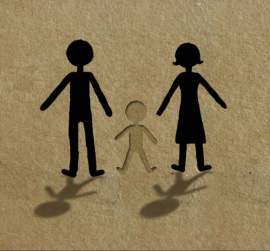
A Look into Orphanage

Must Read
What is an Orphanage?
An Orphanage is defined as an institution that ranges from private to public ownership, which provides a place of residence and refuge to children and minors whose respective parents are unable to provide them with adequate care. However, the establishment of an Orphanage supersedes the definition of an institution providing health and housing for underprivileged children; both the regulatory stipulations, as well as the applicable legislation innate within the operation of an Orphanage is subject to strict oversight.
Why Do Children Become Orphans?
The reasoning behind the placement of an individual child within the care of an Orphanage exists beyond uniform reasoning and explanation; while certain causes for the orphaning of children may be more common than others, the possibility for the prospective orphaning of a child is virtually limitless:
Neglectful parents or households provide for a large majority of children placed within the care of a respective Orphanage; the prospect of neglect can be defined through a variety of terminology ranging from abuse to absence – in addition, cases of neglect range from abandonment to court-mandated removal of a child from an household deemed to be neglectful
Financial insolvency and economic insolubility may also account for the placement of a child in the care of Orphanage; although considered to be neither negligent nor intentional, parents of children may find themselves simply unable to provide for the health and wellbeing of their children
The death or illness sustained by parents of children account for a bulk of instances in which children will be placed under the care of an Orphanage; death and illness can include a variety of diseases, poverty, or incapacitating conditions preventing a parent from providing adequate care
Orphanage Adoption and Foster Care
Following the legal adoptionor fostering of a child from an orphanage, the parent – or parents will be granted a varying degree of responsibilities or supervision with regard to the child:
Adoption
The adoption process takes place when the adopting parents or parents have agreed to become the legal Guardian of that child; a process that may coincide with additional forms and fees required to be fulfilled on the part of the adopting parents
Foster Care
Foster Care is defined as the placement of an individual under the supervision of an approved individual – or individuals – on what is considered to be a temporary basis; in the event that a child under the care of an orphanage has been deemed to be an eligible candidate for Foster care, applicable administrative stipulations will be undertaken with regard to the fostering process
Orphanage Facts
The following facts have been complied in order to present statistics with regard to the operation of Orphanages both on domestic and international levels:
Upwards of 140 million children are currently under the care of Orphanages on both domestic and international levels
Due to the varying degree of the conditions of Orphanages on a worldwide level, children under the care of Orphanages are subject to fatal malnutrition on an ongoing basis
Upwards of 6,000 children are placed in the care of orphanages as a result of AIDS-related death sustained by their respective parents
NEXT: Adopt a Child in the US. Here's How





















